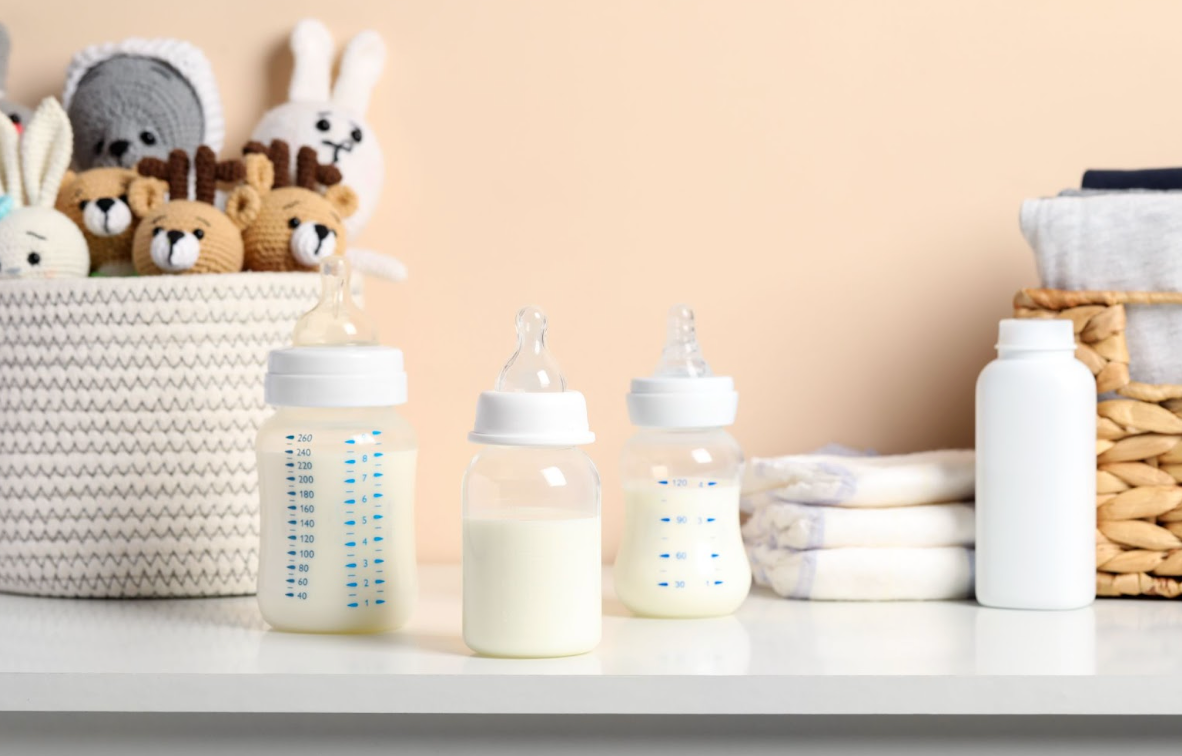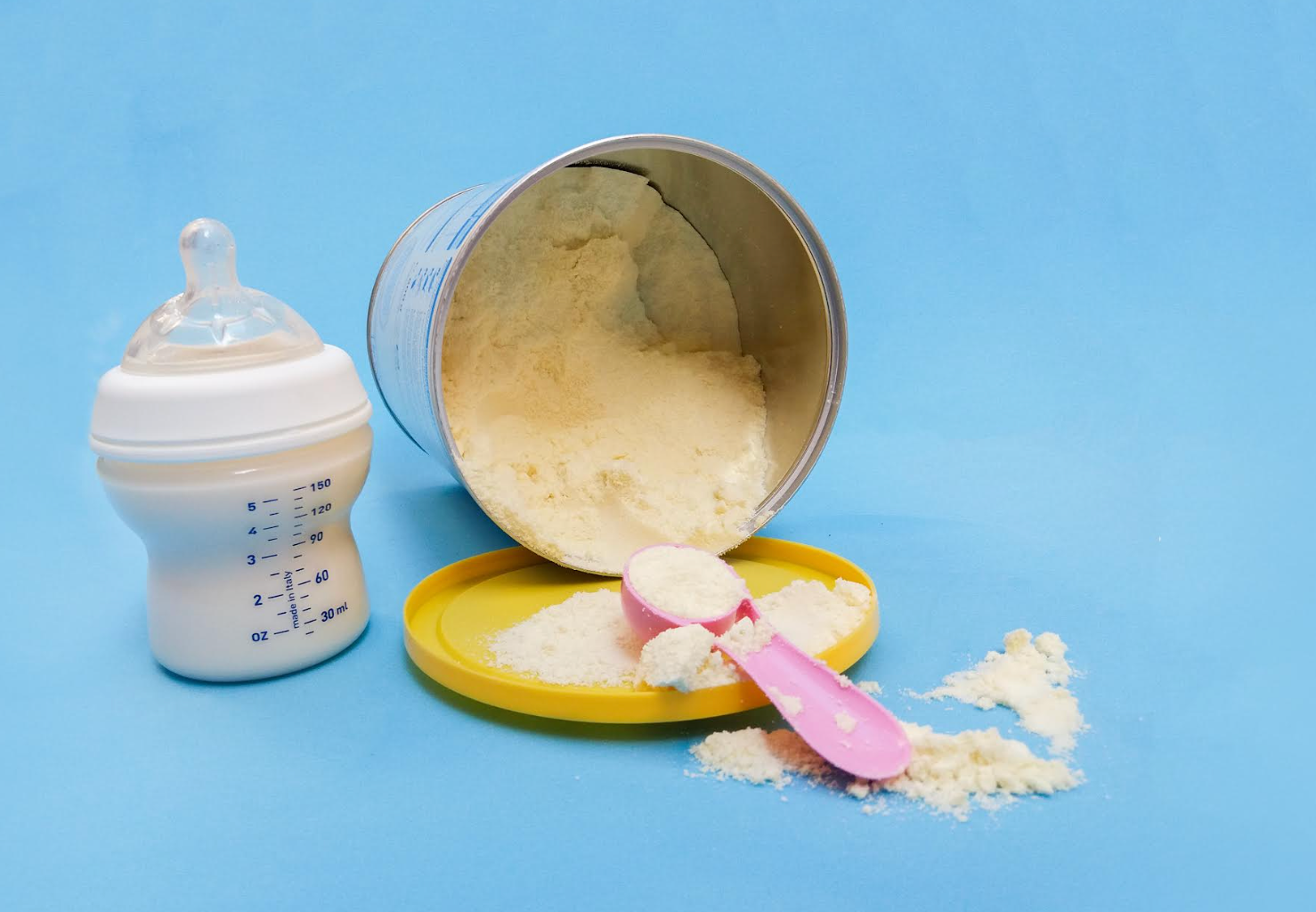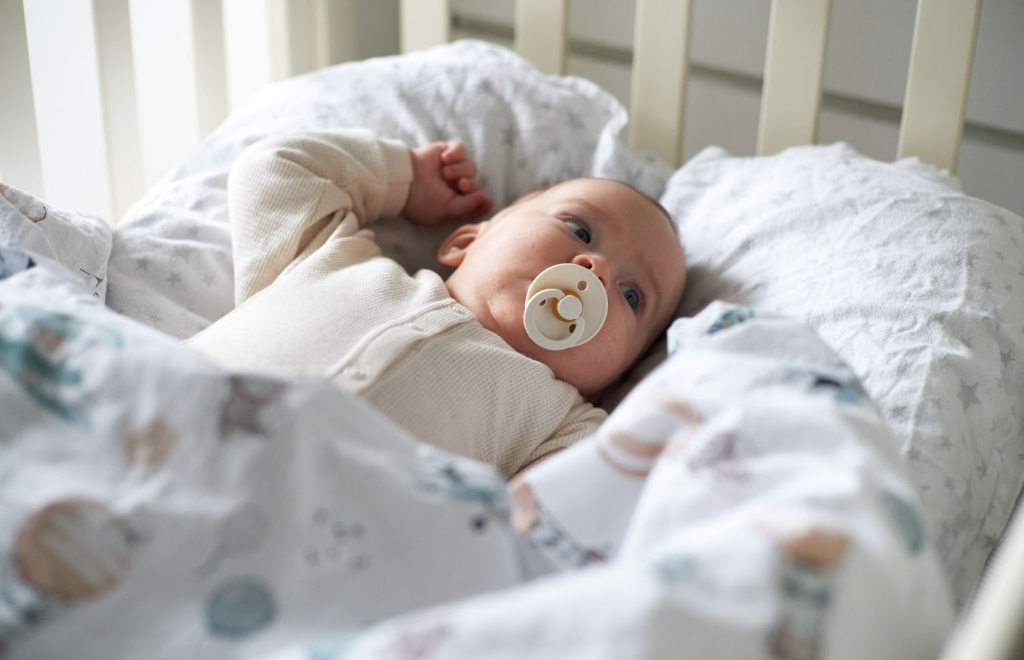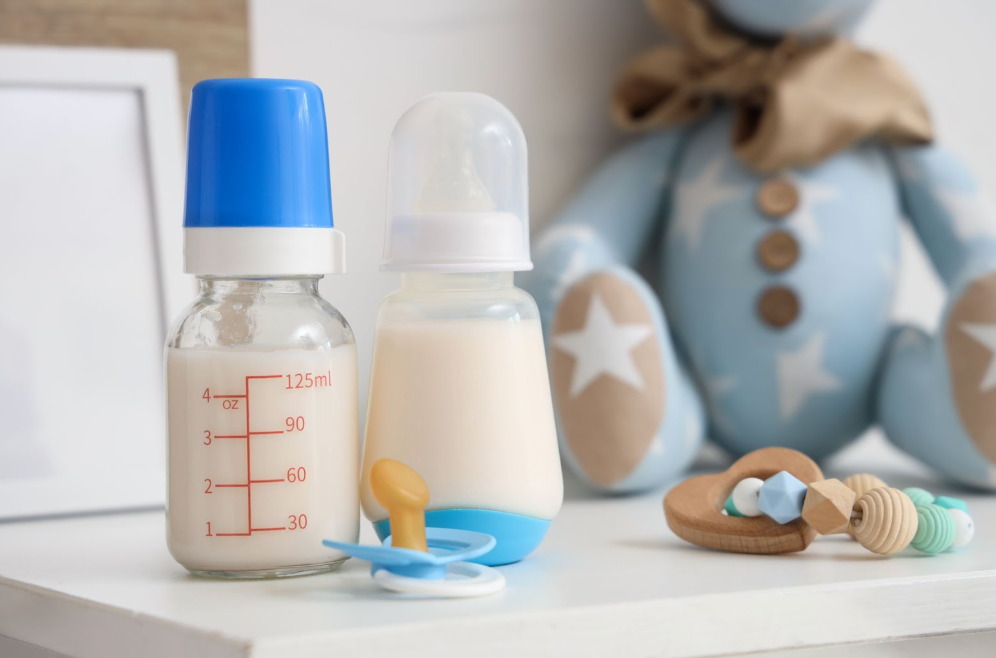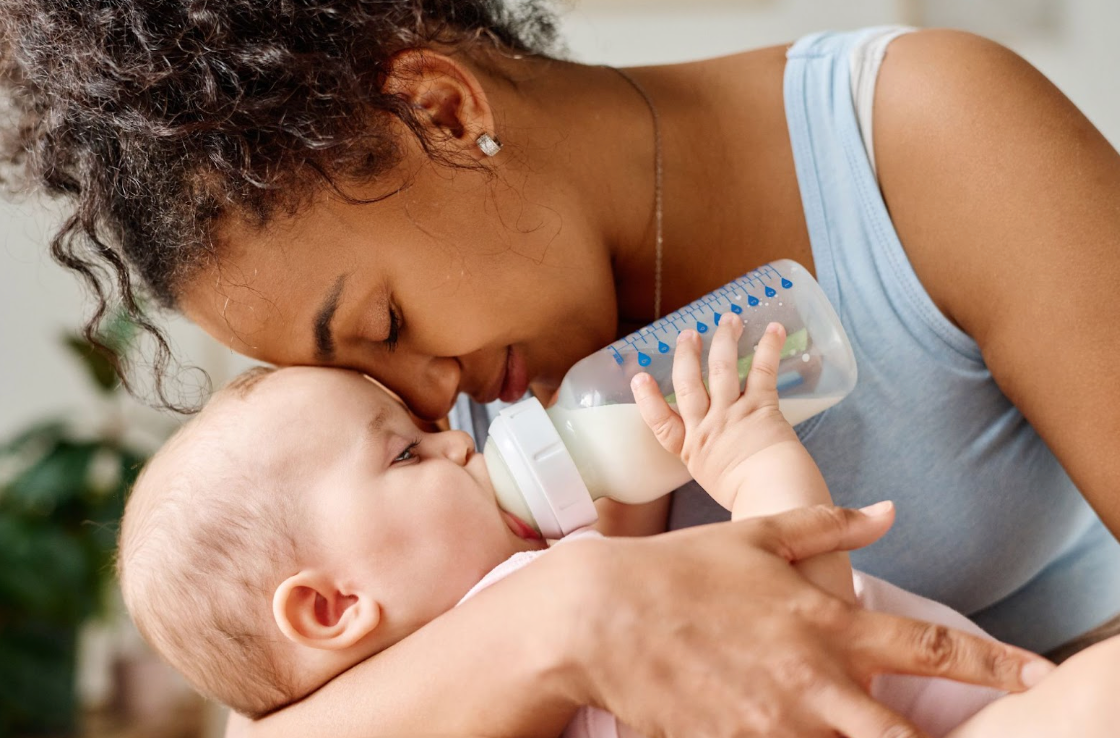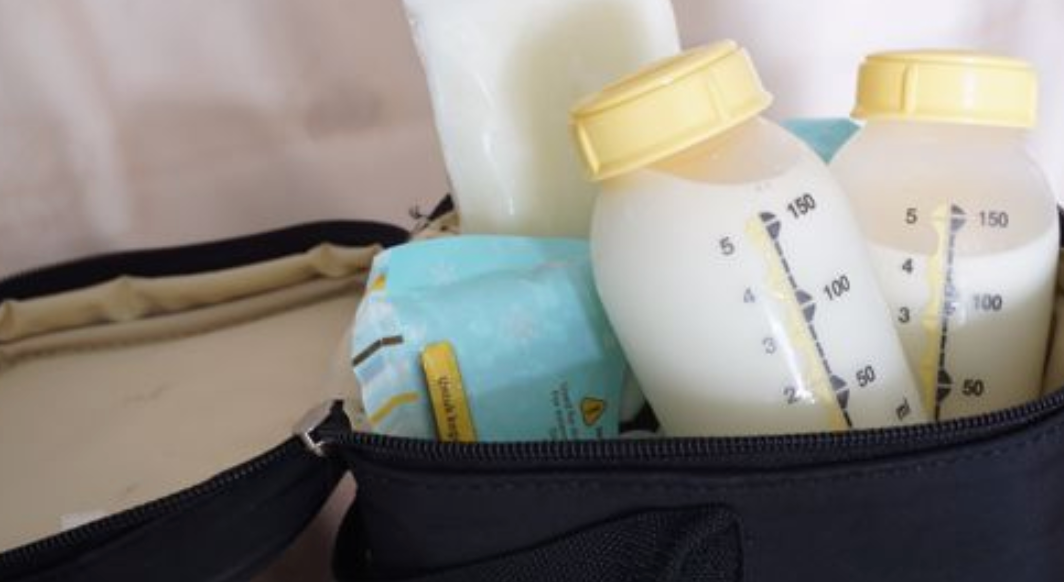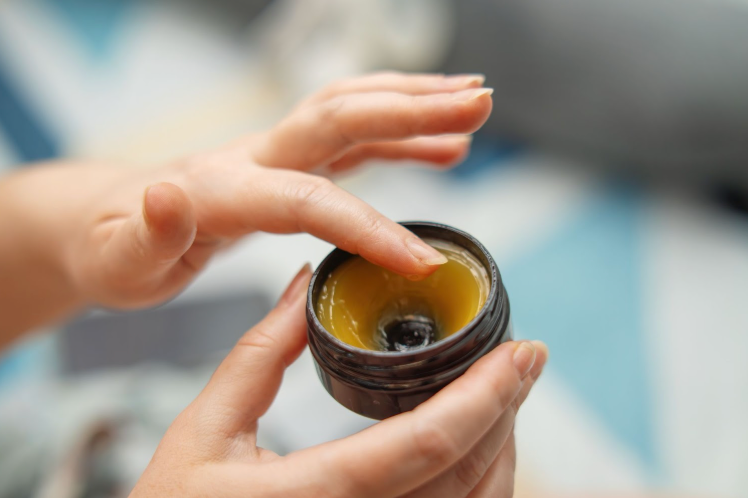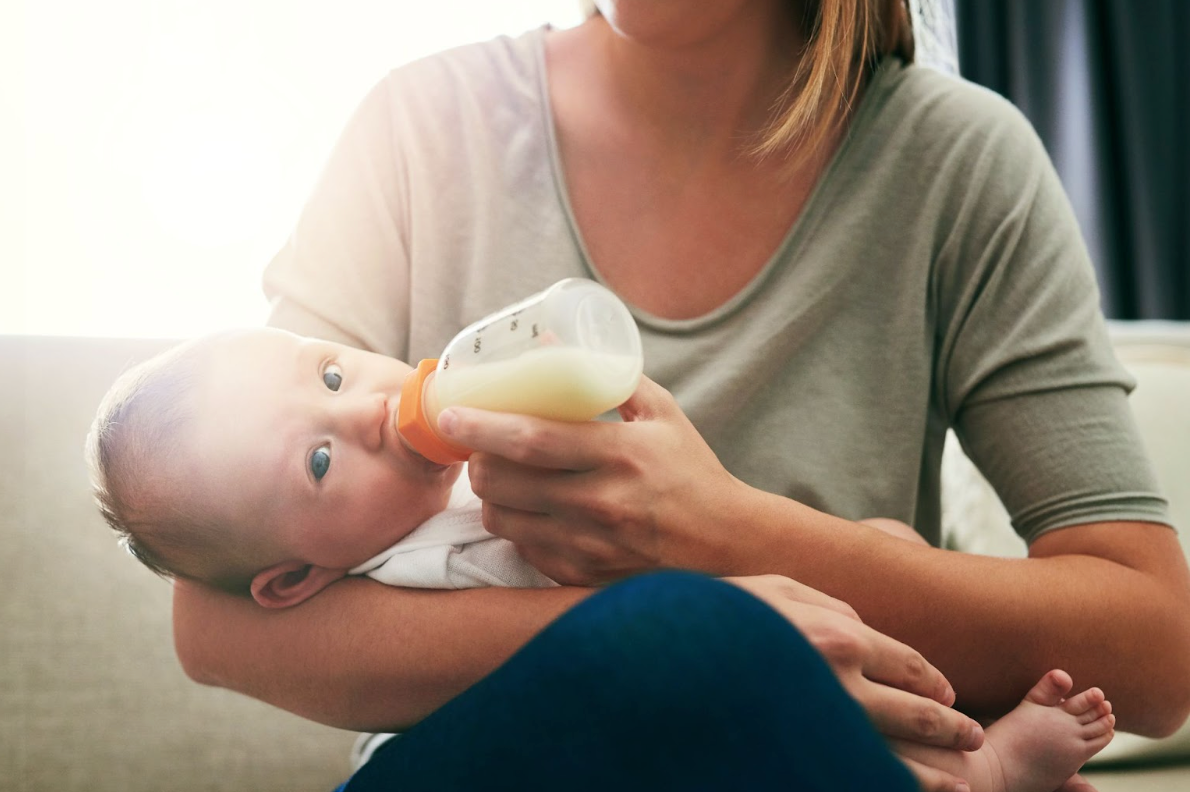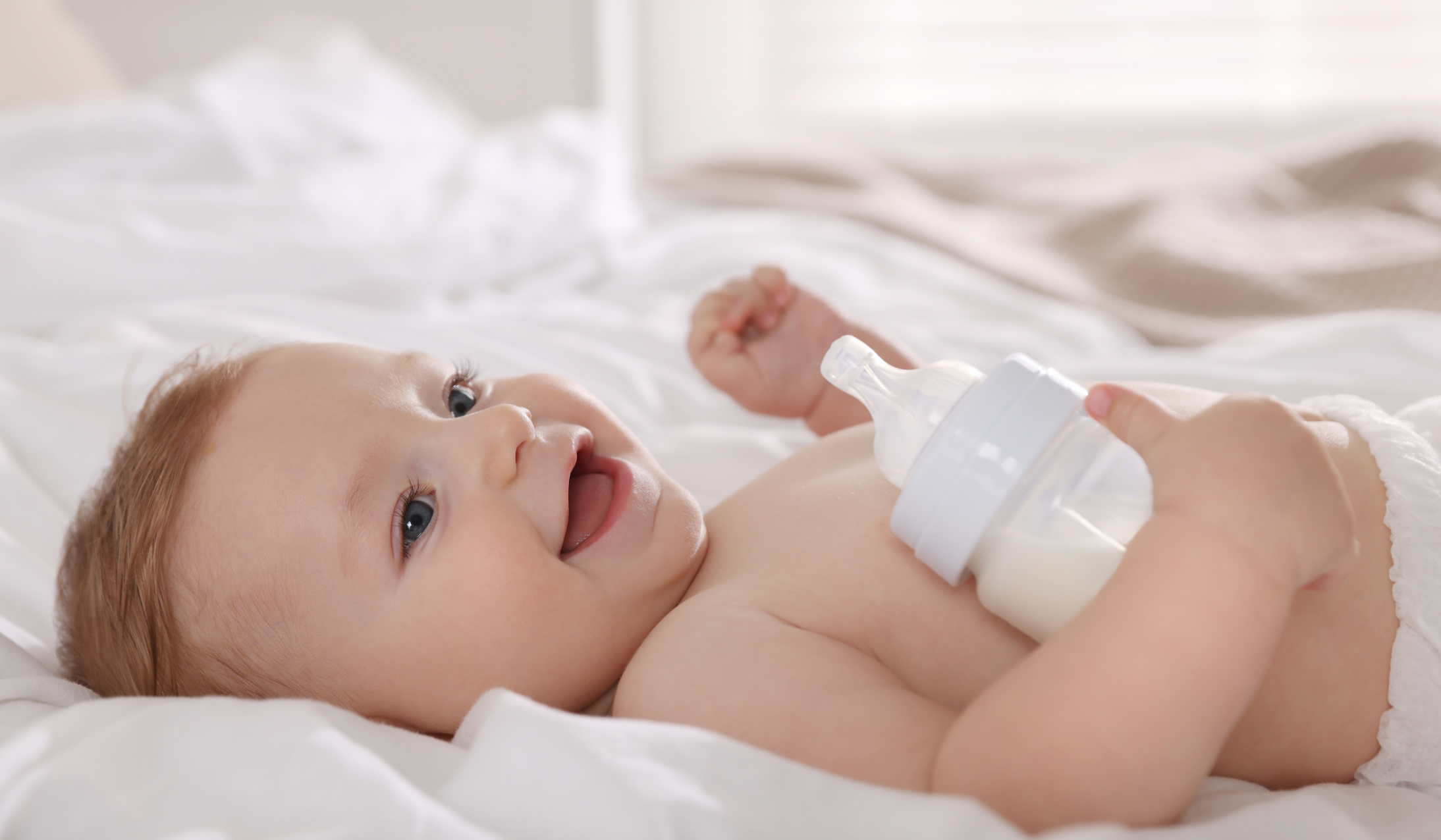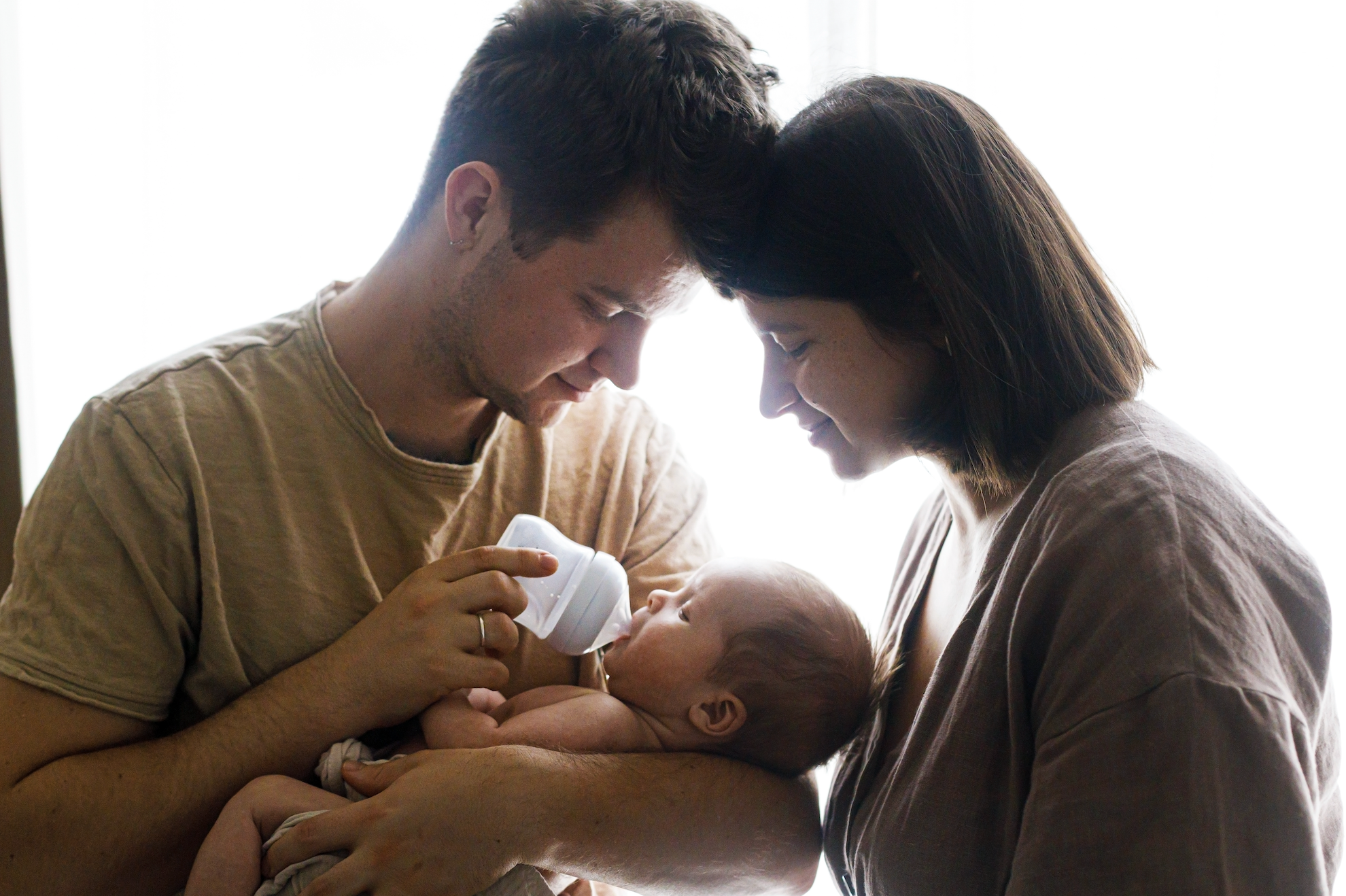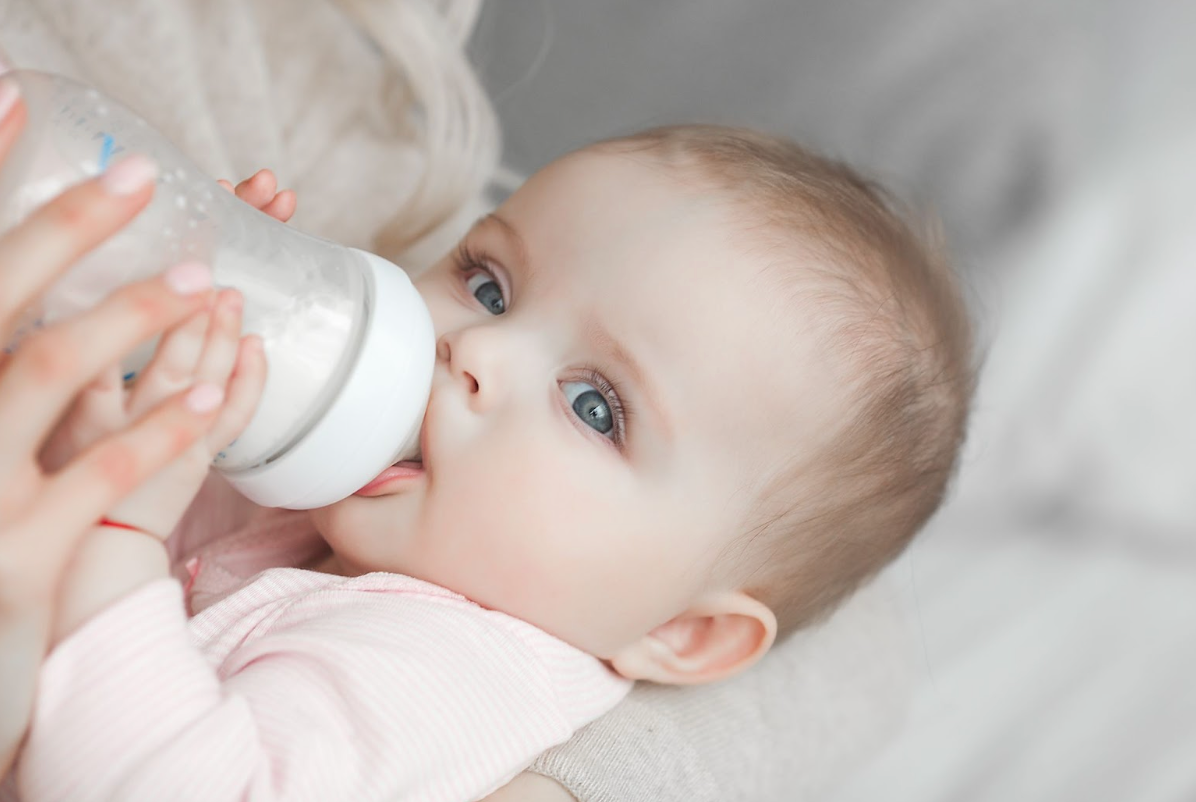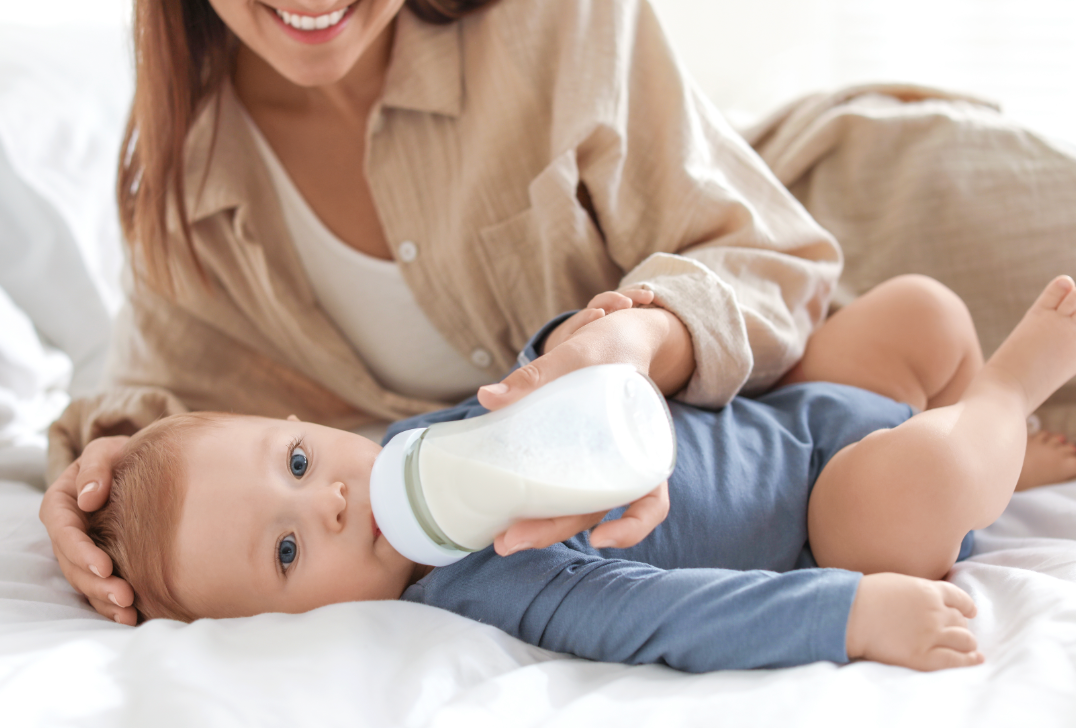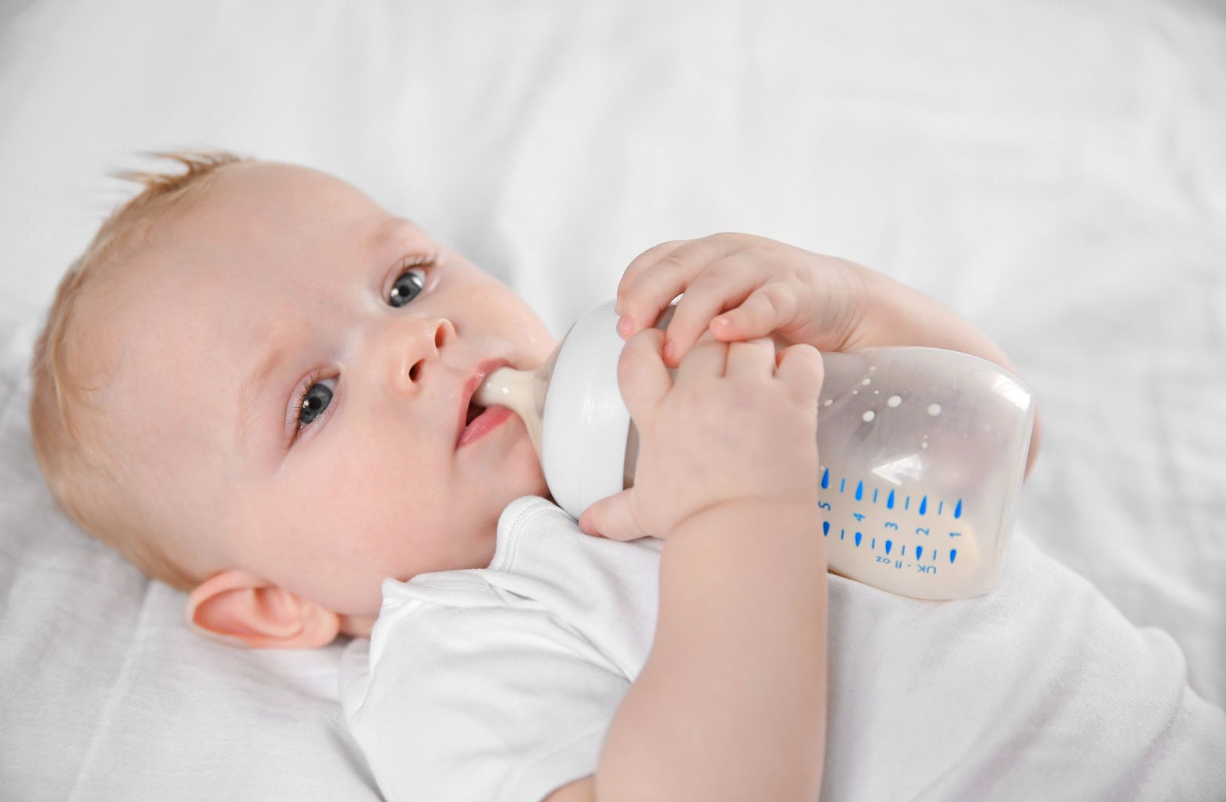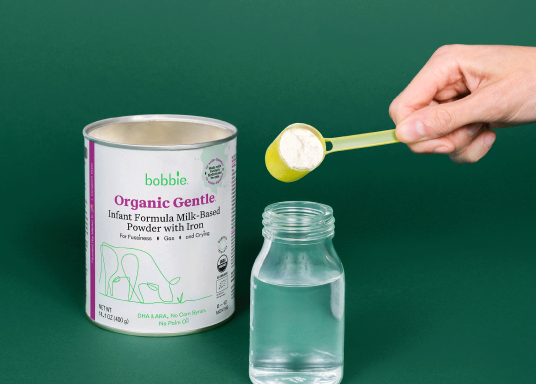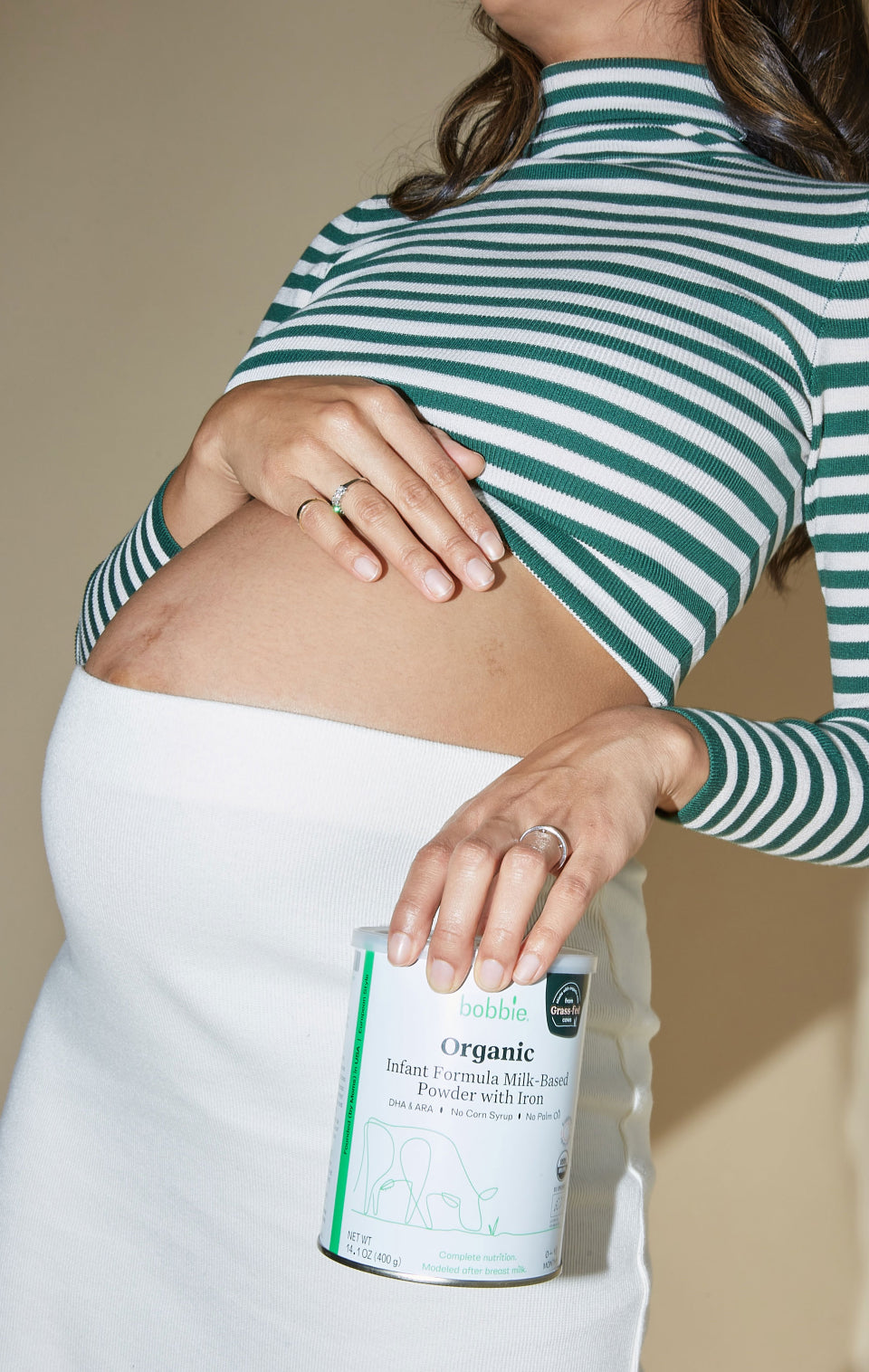Published June 21, 2025
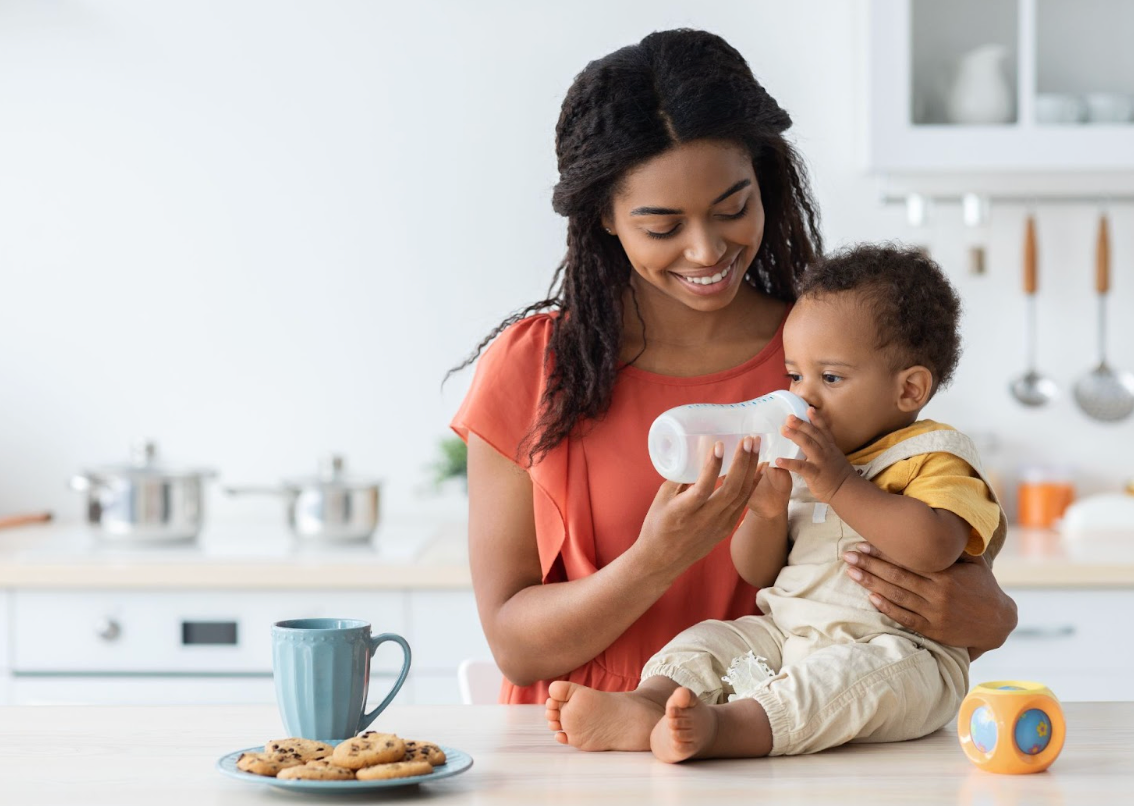
Bottle Feeding Accessories Every Parent Needs
When you’re preparing to bottle feed your baby, having the right accessories makes a world of a difference. Think of them as your feeding sidekicks: they help streamline your routine, reduce mess and make every feed more comfortable for both you and your baby.
Bottle feeding accessories include everything from baby bottles and warmers to bottle brushes and burp cloths. They’re more than "nice-to-haves" – they can make feeding feel smoother, safer, and less stressful. This is especially true for formula-feeding families, where planning and prep play a bigger role.
In this guide, we’ll break down the must-haves, the optional helpers, and the smart tips that take the guesswork and stress out of bottle feeding.
Why Buy Bottle Feeding Accessories?
There are a few key reasons to invest in the right bottle feeding accessories early:
-
A smoother routine: Having everything set up means fewer hiccups at feeding time.
-
Hygiene and safety: Clean bottle parts and sterilized feeding items keep your baby healthy.
-
More comfort: Items like a feeding pillow, burp cloths and the right nipple cream can make feedings better for both of you.
-
Convenience: For nighttime or on-the-go feeding, accessories help you pre-plan for feedings without missing a beat.
Must-have Bottle Feeding Accessories
Here are the bottle feeding essentials every parent should consider.
Bottles
Start with a few different kinds of feeding bottles before committing to one brand or shape. Some babies prefer glass bottles, others love the feel of silicone, like the Comotomo baby bottle. Size matters too: use 4 oz for newborns and switch to 8 oz as your baby grows.
If your baby is dealing with colic or gas, consider anti-colic bottles with venting systems, like Dr. Brown’s, to reduce air intake. Whether you prefer plastic baby bottles or glass, make sure they’re BPA-free and easy to clean.
Bottle Nipples
Bottle nipples come in different sizes and flow levels. Newborns usually start with slow flow (level 0 or 1), then move to medium (level 2) or fast flow (level 3) as they grow. If your baby is sucking hard, getting frustrated or having more sucks than swallows, it may be time to size up. If your baby is leaking milk during feeds or coughing or choking during feeds, it’s a good idea to size down.
Always check that the nipple is compatible with your baby bottle brand, and replace it if it shows signs of wear or damage.
Bottle Brush
Even if your bottles are dishwasher-safe, you’ll want a baby bottle brush for those hard-to-reach spots. Look for soft bristles and a built-in nipple cleaner. It helps get rid of milk residue and keeps bottle feeding equipment clean and safe. Be sure to designate this brush for bottles — you don’t want to use the same brush for your other dishes.
Bottle Drying Rack or Mat
A dedicated bottle drying rack keeps your bottle accessories upright, clean and dry. Don’t rely on towels; they can harbor bacteria. Bonus: A compact drying rack helps keep your kitchen organized, too.
Bottle Warmer
Not all babies need warm milk, but for those who do, a bottle warmer can be a game-changer. It offers consistent warming without hot spots. It’s also handy if you’re combining breast milk and prepared formula in the same bottle. Some babies are perfectly happy with room temperature or cold milk. And that’s okay too, follow their lead.
Bottle Sterilizer
If your baby is premature or is immunocompromised, you’ll want to sterilize all your bottle parts regularly. Electric and microwave sterilizers are quick and easy, but boiling bottles in water works too. Ask your pediatrician how often to sterilize based on your baby’s age or health.
Burp Cloths and Bibs
You’ll use burp cloths daily — sometimes hourly. They help manage spit-up, drool, and unexpected messes. Look for machine-washable options made of absorbent fabric like organic cotton. A good burp cloth is a must-have among your feeding accessories.
Dishwasher Basket for Small Parts
A dishwasher basket keeps bottle nipples, valves, and collars secure during washing. No more fishing for parts at the bottom of the dishwasher. It’s one of those small things that saves a lot of time.
Formula Dispenser and Storage Containers
Pre-portioning formula is a smart move, especially for nighttime or travel. A formula dispenser container lets you prep your servings ahead of time so you won’t be scooping powder in the dark.
Pitcher or Formula Mixer
Formula needs to be mixed correctly for safety. A formula pitcher helps you batch a day’s worth of milk at the right ratio and can be stored in the fridge. Be sure to use any batched formula within 24 hours, always use safe water — boiled and cooled or bottled — and follow label directions.
Do you need help knowing how often to feed? Check out this feeding schedule by month to match your baby’s needs with your routine.


Your go-to resource for all things new baby.
Sign up to get the scoop on feeding, sleep, poop, and so much more.
By singing up for email, you are to receive marketing emails from Bobbie and can manage your email preferences or unsubscribe at anytime
Optional but Helpful Accessories
Some extras aren’t essential, but they make things a whole lot easier.
Gas Drops, Gripe Water, or Probiotics
For babies with colic or frequent gas, supplements like probiotics can offer relief. Always talk to your pediatrician first before trying supplements.
Portable Bottle Cooler or Warmer
Feeding on the go? An on-the-go cooler or travel bottle warmer can help maintain the right temperature for formula or expressed breast milk. It’s especially useful if you’re away from home for long stretches.
Bottle Labels
Bottle labels make it easy to track when a bottle was prepared, what’s in it, and when it should be used by. Super helpful for middle-of-the-night feeds or prepping bottles for daycare!
Travel Bottle Cleaning Kit
A compact kit with a bottle brush, soap and sterilizer bags means you’re never caught off guard when away from home.
Feeding Pillow
Whether you’re bottle feeding or breastfeeding, a supportive pillow eases arm strain and shoulder tension and helps your baby latch or hold comfortably. Always hold the feeding bottle and avoid propping, which can increase choking risk.
Bottle Feeding Tips Every Parent Should Know
As your baby grows and your routine evolves, a few small shifts can make bottle feeding smoother, safer and more predictable. Here’s what to keep in mind:
How To Sterilize Bottles and Nipples
Boiling for 5 minutes, using steam sterilizers, or using microwaving sterilizer bags all get the job done. Immunocompromised and premature babies benefit from frequent sterilization; older babies may only need occasional deep cleans. Always sterilize bottle and pump parts when first taking out of the package no matter your baby’s age or health status.
When To Replace Bottles and Nipples
If you notice cracks, cloudy plastic, or signs of wear, it’s time for a replacement. The same goes for nipples that are thinning, sticky or misshapen.
Signs Your Baby Needs a Different Nipple Flow Rate
Is feeding taking forever? Or is your baby frustrated or sucking too hard? Leaking milk from the sides? All signs are showing that it might be time to switch nipple sizes.
Safe Storage and Heating Tips
When it comes to safe storage and heating, timing and temperature matter. Discard any leftover formula within an hour of starting a feed, and skip the microwave as hot spots can scald your baby’s mouth. For peace of mind, always follow the storage instructions on your formula label to keep everything safe and fresh.
When Can Babies Go 4 Hours Between Bottles?
Most babies can go longer between feeds at around two to four months, if they’re gaining weight and your pediatrician gives the green light. However, many parents find that a three-hour schedule during the day helps reduce night feeds as it prioritizes getting sufficient calories during waking hours!
Learn more in our full feeding guide.
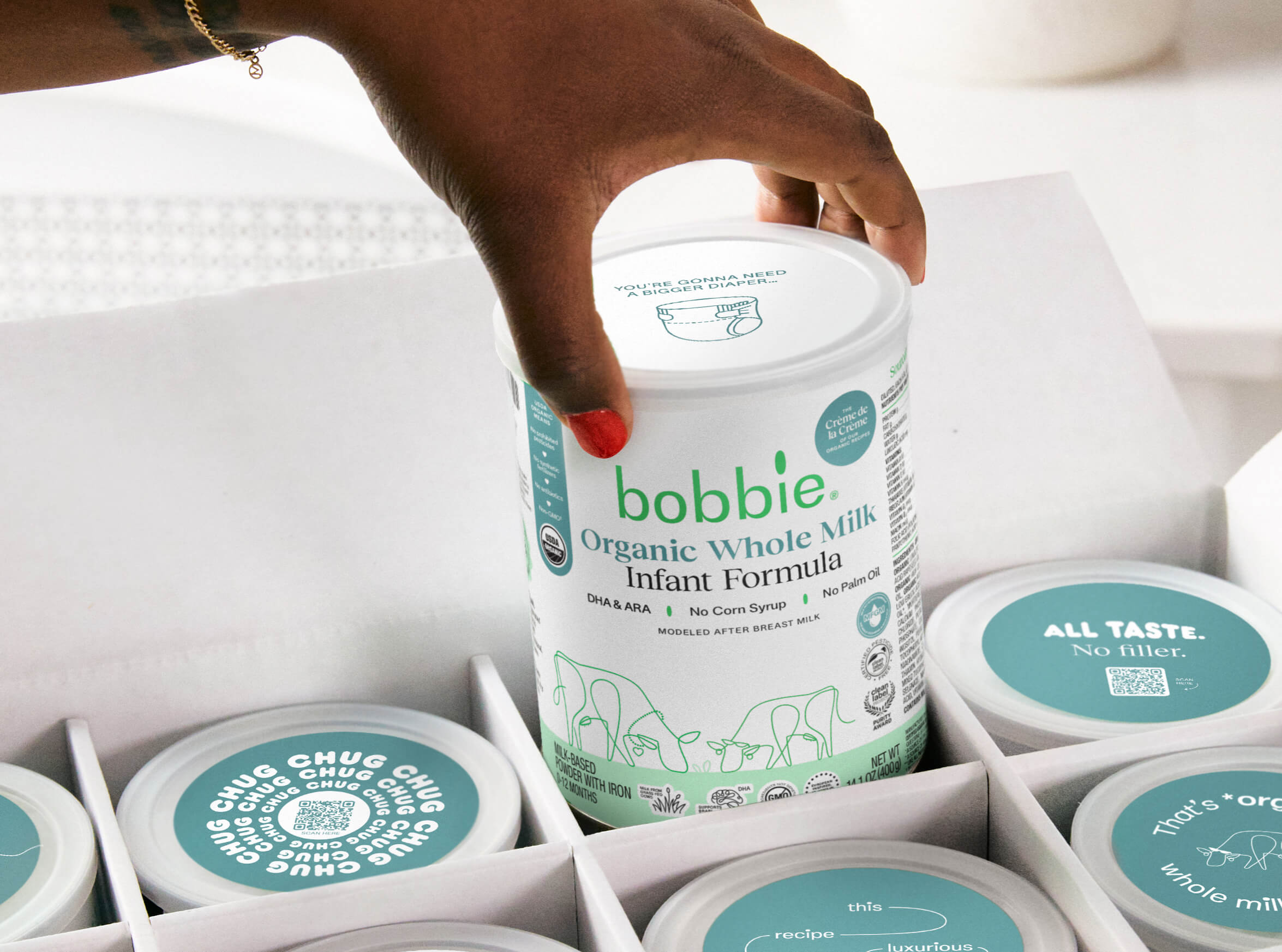
Shop Bobbie Baby Formula
Bobbie infant formulas are clean, EU-style infant formulas that meets all FDA requirements. They are complete nutrition, milk-based powder, modeled after breast milk and is easy on tummies. They are all non-GMO and do not have corn syrup, palm oil, or maltodextrin. Shop Bobbie today!

Formula-Feeding Families: What You Really Need To Know
Whether you’re formula feeding full-time or supplementing while primarily giving breast milk, having the right setup reduces stress and ensures your baby is getting what they need.
-
Always read and follow the formula label for mixing and storage.
-
Pre-made bottles or batched pitchers of formula should be refrigerated and used within 24 hours.
-
Discard unused milk one hour after the feed starts.
-
For travel, use pre-measured formula in dedicated feeding containers and bring bottled water.
Every baby is different. Some need a gentle infant formula for a sensitive stomach, while others thrive on a whole milk formula. If you’re unsure which one to choose, try our tool to find the right formula.
Explore Bobbie's full line of organic infant formula, developed to meet the nutritional needs of modern families.
Ready To Simplify Feeding Your Baby With Bobbie?
The right feeding supplies don’t just make feeding easier — they help you feel more confident and connected during a time that can be overwhelming. Whether it’s a sterilizer, a soft burp cloth or a perfectly mixed bottle of Bobbie Organic Infant Formula, what matters most is that you and your baby are safe, supported and fed.
At Bobbie, our infant formulas are crafted to give babies what they need and parents peace of mind.
Whatever feeding looks like for your family, Shop Bobbie for clean, organic formula you can trust.
The content on this site is for informational purposes only and not intended to be a substitute for professional medical advice, diagnosis or treatment. Discuss any health or feeding concerns with your infant’s pediatrician. Never disregard professional medical advice or delay it based on the content on this page.








